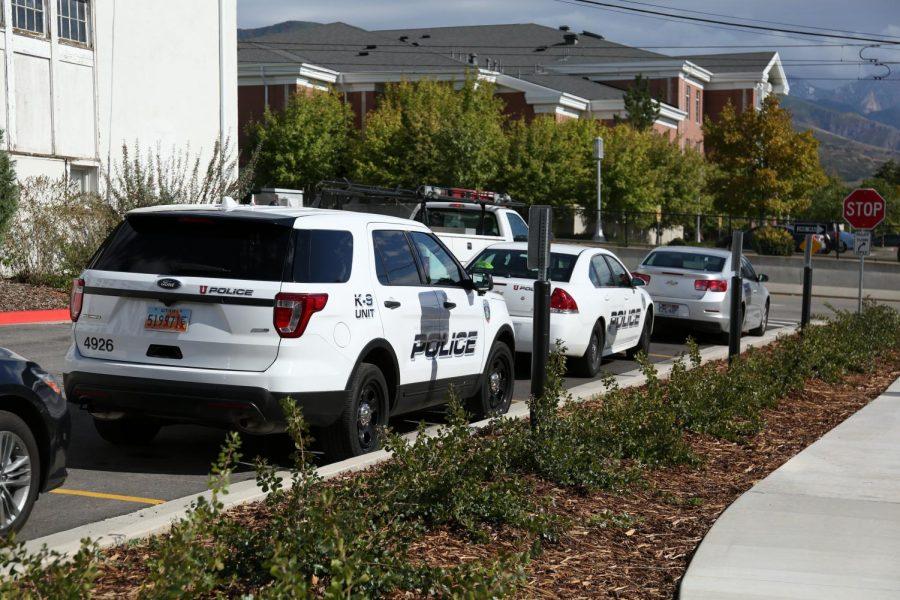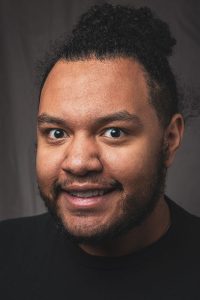Chief Safety Officer and Chief of Police Outline Plans for Officer Training
March 24, 2020
Chief Safety Officer Marlon Lynch and Chief of Police Rodney Chatman plan to revamp police training at the University of Utah.
During the event “Reframing the Conversation: Expanding the Portrayal of Black Men” on Feb. 24, chief safety officer Marlon Lynch received many questions from audience members.
One of the most common questions: What new trainings will be held for the police officers of the U?
“It’ll be in collaboration with Chief Chatman,” Lynch said. “He will have responsibility for the day-to-day operations of the police department. In that reporting structure, we’ll partner to discuss what the needs are sort of holistically for the institution regarding training of our staff with them.”
Because Lynch is new to his position, his plans have not yet been put into action.
Lynch said the state of Utah requires “x number of [training] hours on specific topics,” but he thinks it is necessary to train beyond these hours.
“That type of training will be levels of sensitivity training that will be based on culture, based on race, gender, how people identify, things of that nature. Things that will be specific to our community,” Lynch said.
Lynch also talked about implicit bias and said there will be training to address this issue.
Chief of Police Chatman spoke about the training he is leading with his officers.
“We’re doing some significant top-to-bottom training on our mental health response,” Chatman said.
“We’re going to get, very soon, national recognition for being a one-mind compliant police department. That says 100% of your officers are either crisis intervention trained or mental health [and] first aid trained,” Chatman said.
Chatman also discussed implicit bias. He said that his officers are currently going through that training and that implicit bias training is mandatory for every police department.
“We have to do that so we can better understand when underrepresented populations stand and say ‘I don’t trust the police,'” Chatman said.
Chatman’s officers are already implementing the new trainings.
“We’re setting up through the vision of caliber press front-line supervision training. Our officers are going through the crisis intervention, mental health responding to persons in crisis,” Chatman said.
“There’s a joint training that has taken place from our victim’s service. Our victim’s advocate, she is even helping us in our response to domestic and interpersonal violence, and in sexual assault-type trainings,” Chatman said.
Both Chatman and Lynch agreed that the police need to foster a better relationship with the campus community.
“Admittedly, we got to do a better job, and I don’t know what that means in terms of telling the story. I don’t know [if] that means a better, stronger, more intentional social media presence, if it’s videos, I don’t know,” Chatman said.
Chatman said that effective policing should target the specific needs of the community. “I could create the best lobster and shrimp dinner ever made, and if you don’t like seafood, I missed the mark.”
“The open-door policies are always very cliché, but at the same time, you know as long as you don’t call the police on me, I’ll come to your meeting. I’ll just show up in the building and we can have a conversation,” Lynch said.
“I’ve met with a few students,” Lynch said. “They reached out to me. I asked them what’s comfortable to meet, when and where, and had some that I think were pretty productive conversations. But we needed to be mutual. I know we have work to do to earn the respect and trust. I completely get that.”








